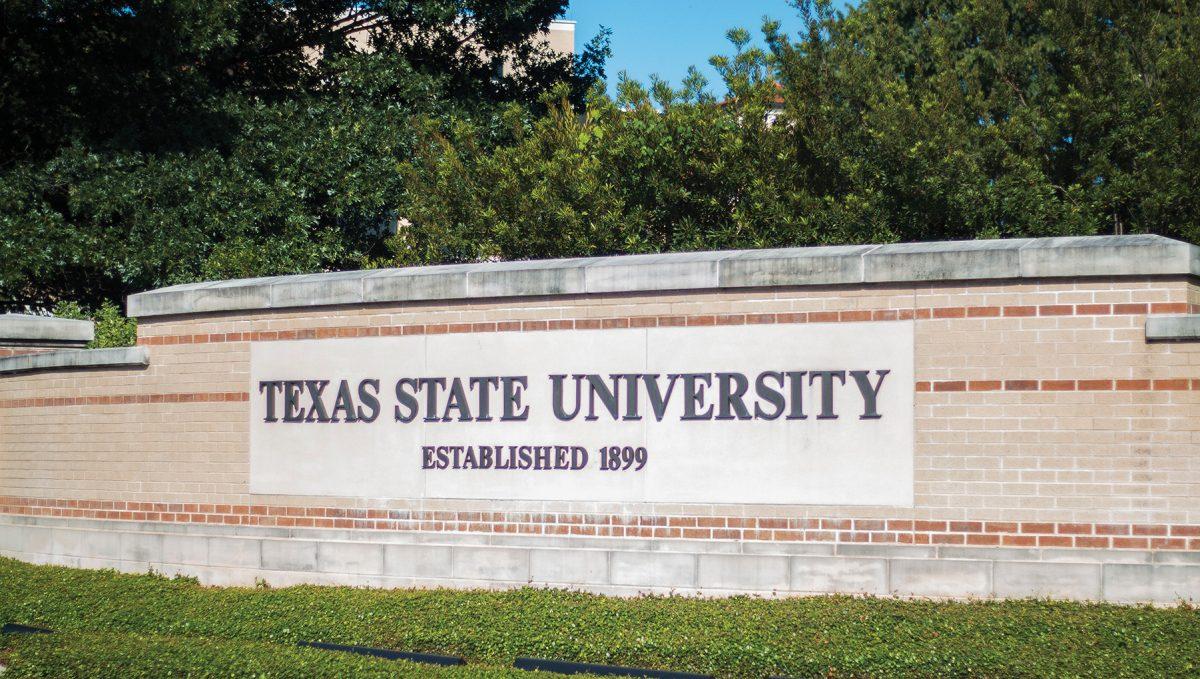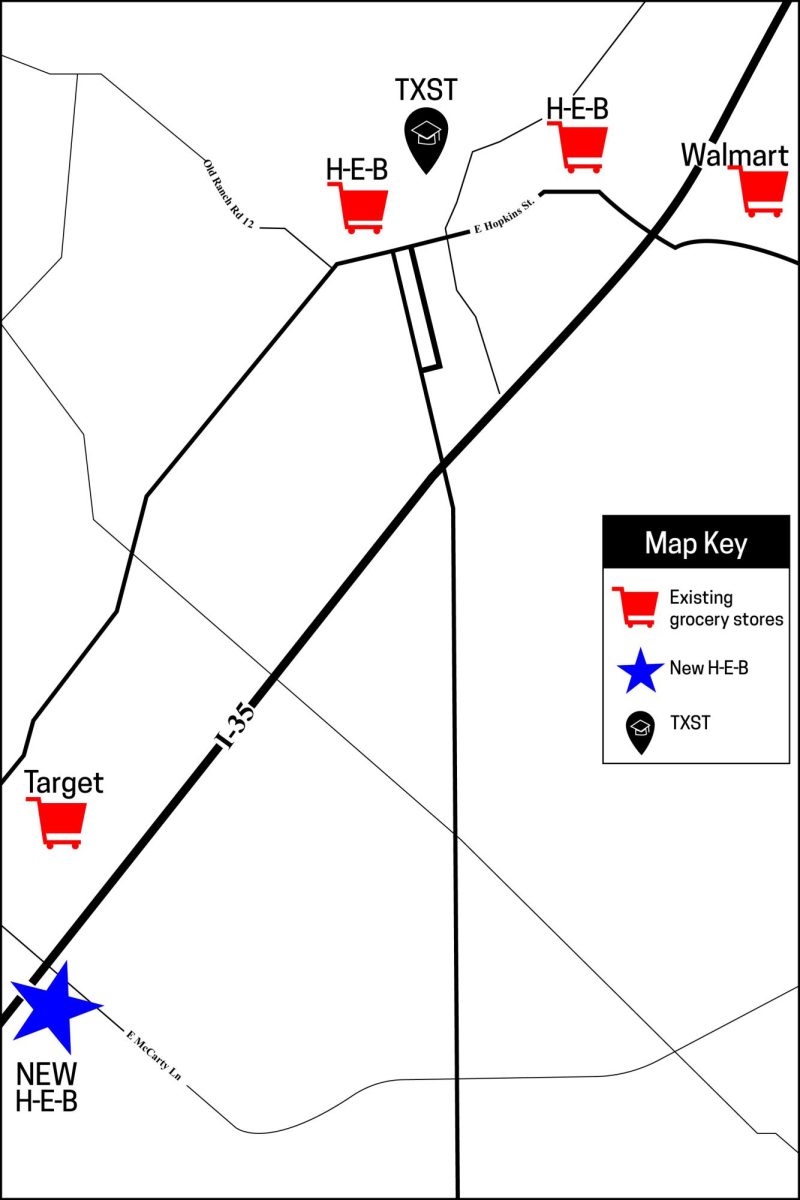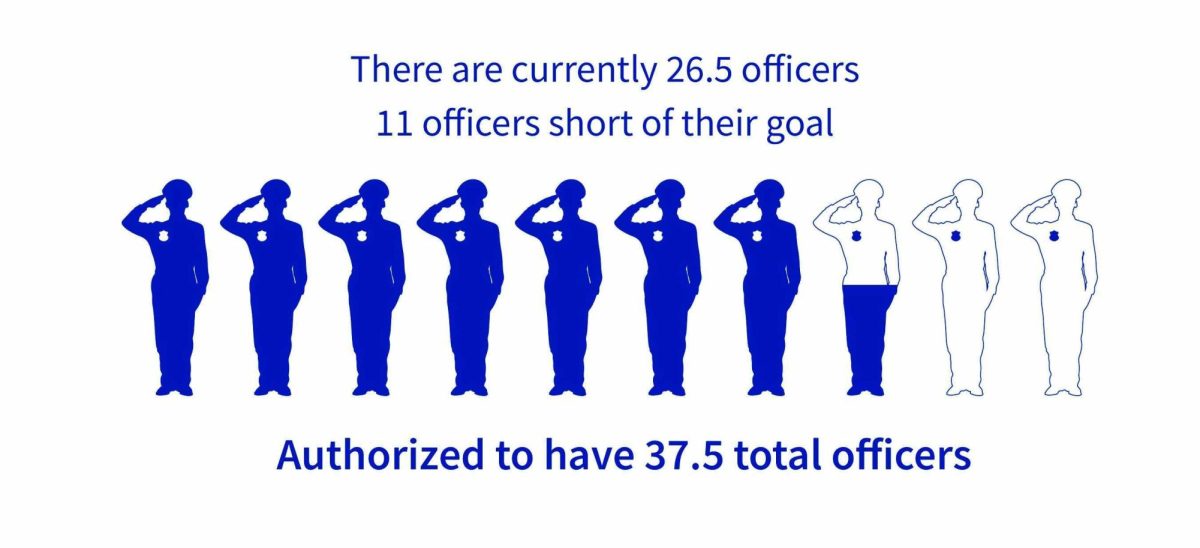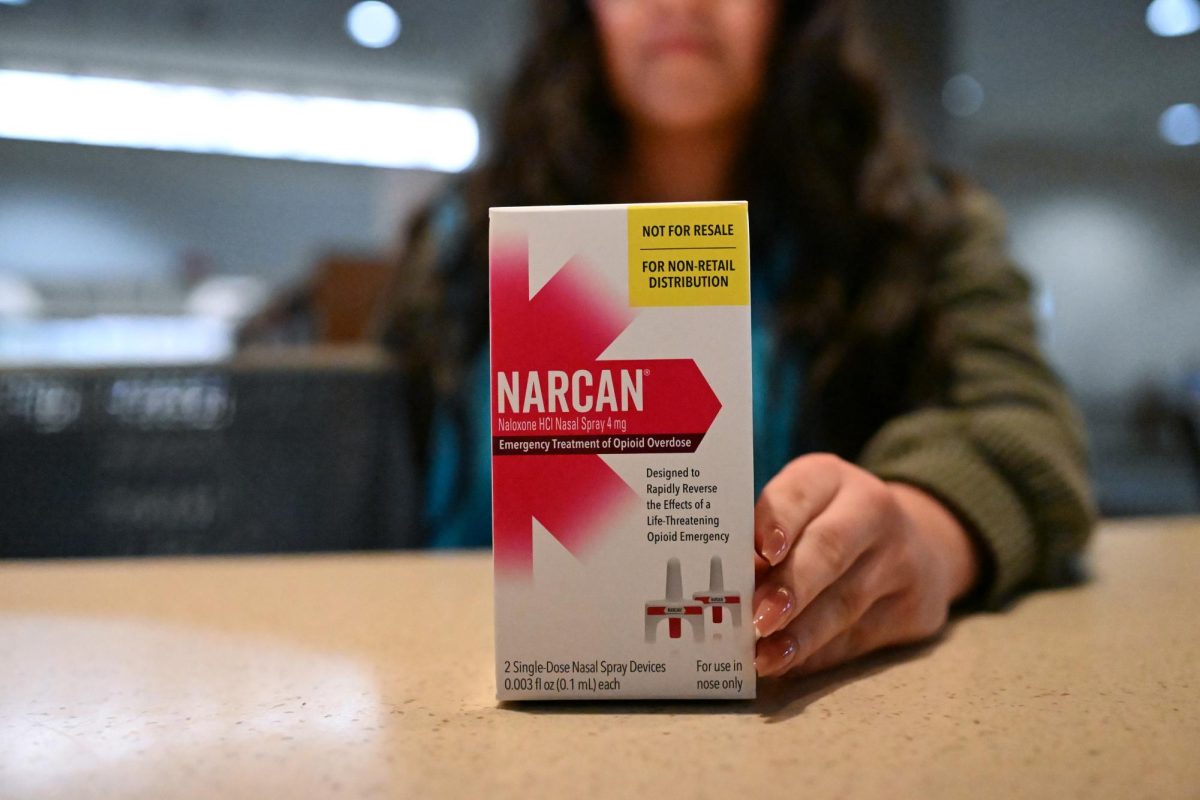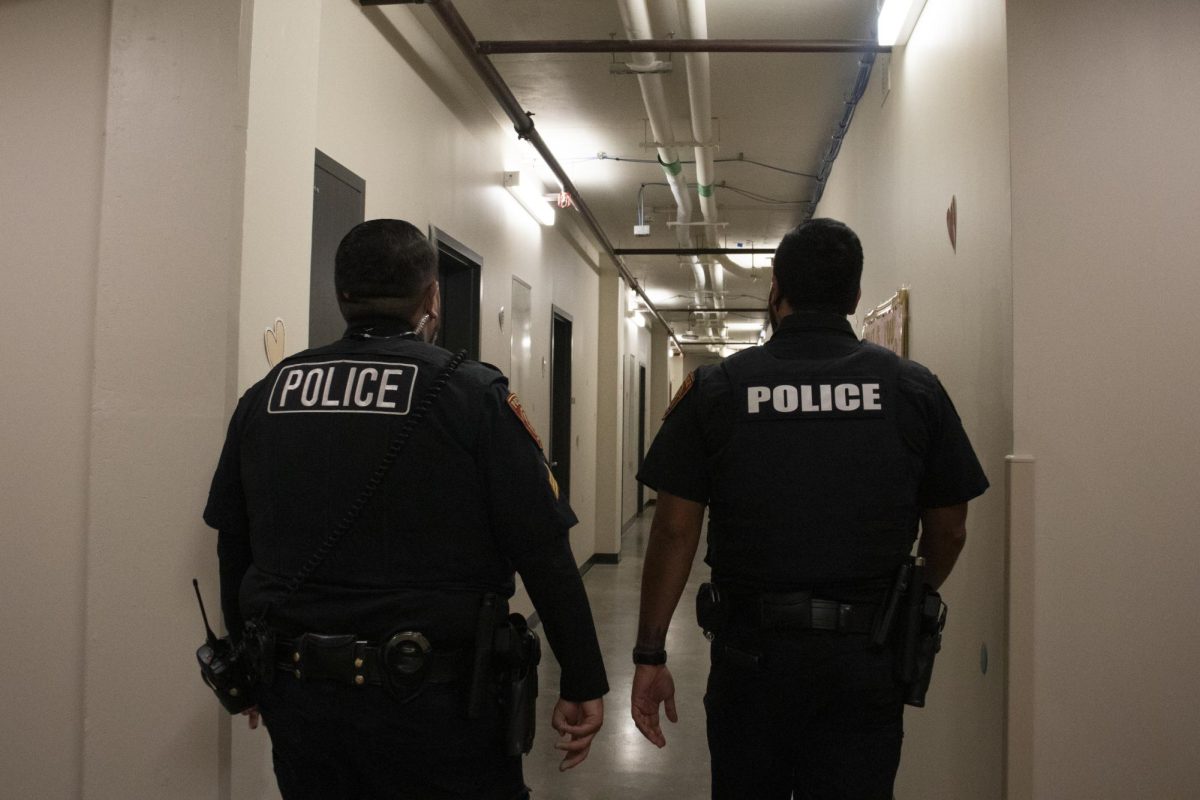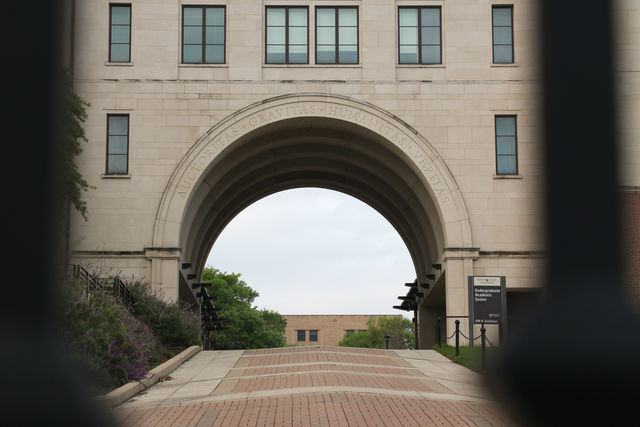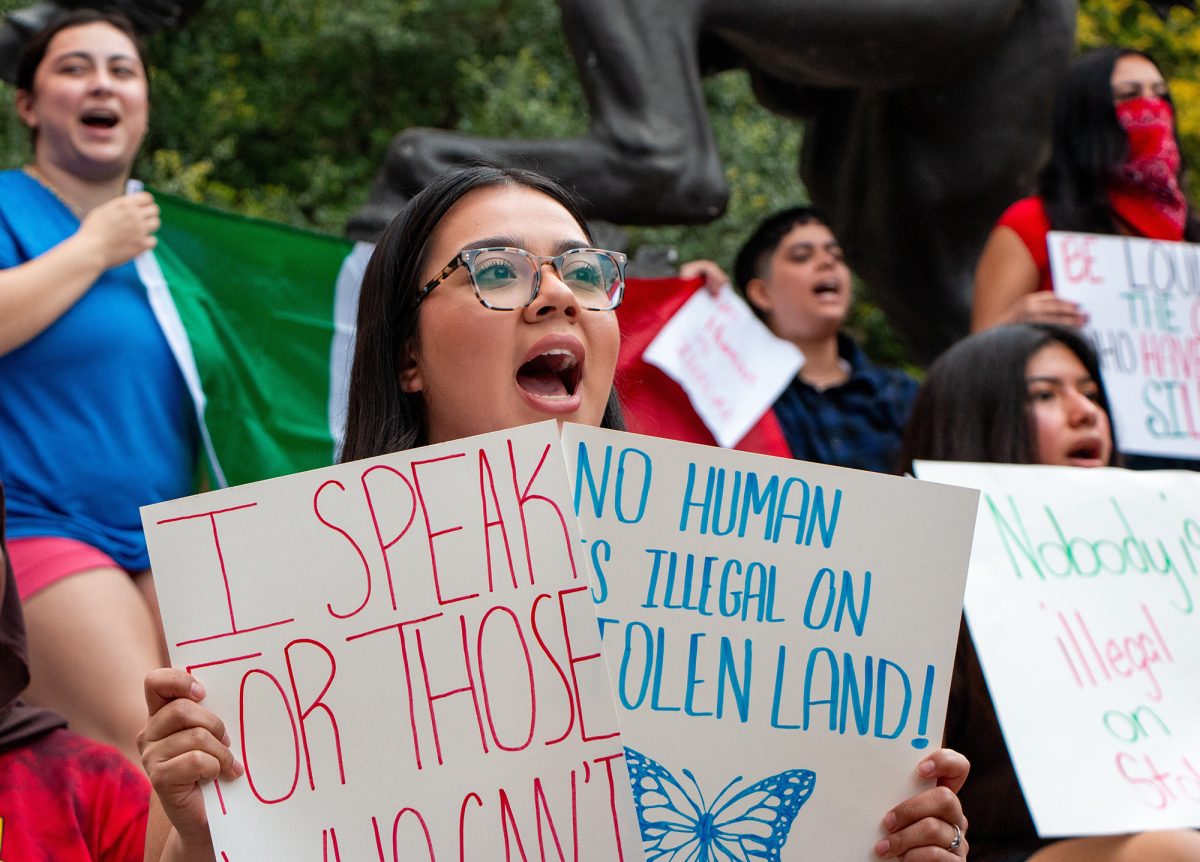Texas State’s collaboration to capture horses on a U.S Army base with kill-buyers who have a criminal history has lead a flux of animal rights groups to criticize the ongoing project.
The university’s involvement with the U.S. Army in Fort Polk became controversially known from a twitter post by user @EKBMary, claiming the actions bring shame to the state of Louisiana, where Fort Polk is located. The post was accompanied by the hashtags #Killbuyers, which are individuals that purchase horses with the intent of selling them to slaughterhouses, and #HorseSlaughter. Several entities were tagged to the post including Texas State’s Anthropology Department and various Louisiana news outlets.
The university was awarded $99,679 in a cooperative agreement between the university and the U.S. Army, titled Horse Capture and Maintenance, set to last 12 months, from Sept. 30, 2017, to Sept. 29, 2018, as stated in a U.S. Army Grant or Cooperative Agreement Award signed Sept. 30, 2017.
Todd Ahlman, director of the Center for Archaeological Studies who is leading the project for the university, said the awarded project is to address trespassing horses, identified as wild horses who accidentally entered the army base at Fort Polk.
“As part of our partnership with the U.S. Army at Ft. Polk, Texas State was asked to help manage horses on the post out of concerns for military personnel and animal safety,” Ahlman stated in an email. “As a result, nonprofit groups like Freedom Reins and St. Landry Parish Animal Control and Rescue are finalizing the successful adoption of 76 horses.
According to a declaration by Milton Wayne Fariss, the integrated training area management coordinator for the U.S Army at Fort Polk, Texas State University is helping Fort Polk with the capture, maintenance and transfer of wild, trespass horses on the base.
As the primary contract holder, Ahlman and other representatives of the project hired members of the Thompson Horse Lot, a business intending to sell horses for a profit, run by Gary Thompson, his brother Erby Thompson and Gary’s son Jacob Thompson, to aid the university in their task. The business identifies as a kill pen, and according to one of their Facebook posts, if the horses they sell are not sold within a certain amount of time, they are shipped to a slaughterhouse in Mexico, which is described as what the horses were intentionally purchased for.
“Based on the different groups we contacted, the Thompsons offered the most experience to be able to capture the horses,” Ahlman said. “They are located close to Fort Polk and they are able to respond to feed and water the horses on a daily basis. No other group we contacted could provide such service.”
Ahlman said the kill pen and the university are not involved with the sale of the captured horses but just aid in the rounding up of the equines. The sale of horses to non-profit rescue groups is handled by the U.S Army.
Despite this, animal defense organizations are still concerned with the university’s collaboration with this kill pen in rounding up the horses and the criminal history of the owners of the business.
One of the members of Thompson Horse Lot, Jacob Thompson, was arrested Aug. 21, 2014, in Sallisaw, Okla., and was charged with second-degree theft of livestock. Thompson purchased almost 200 head of cattle in September 2013 from an auction without attempting to pay the $159,498 bill. In April 2016, he was charged again and sentenced to 10 years probation for theft of livestock and second-degree felony theft. Thompson attempted to purchase 400 head of cattle with fraudulent checks totaling $300,000.
At a January 2018 adjudicatory hearing, Jacob Thompson was held liable for five Lousiana Department of Agriculture violations: selling livestock without a permit, engaging in commercial sale of livestock without a surety bond, transporting animals across state lines without proper health certificates, transporting equines across state lines without EIA certificates, and improper disposal of animal remains.
Stacey Alleman McKnight, director of St. Landry Parish Animal Control, said in an eyewitness testimony for Pegasus Equine that the animals of Fort Polk are usually treated with no respect.
“To send out horses to a killer buyer or have killer buyers assist you in rounding up pretty much says the outlook is pretty bleak for the horse,” McKnight said in a testimony.
When contacted, Thompson Horse Lot told The University Star to contact the university instead, as they said they were not interested in speaking.
The U.S. Army is receiving backlash from animal and equine defense organizations for the involvement of the Thompsons in the removal of the horses at Fort Polk and for the supposed mistreatment of the animals there.
Several animals rights organizations and horse experts have voiced their disapproval of the U.S. Army’s tactics when it comes to handling and managing the horses along with the involvement of the Thompsons, prompting various petitions to circulate, asking local and concerned individuals to help put a stop to the army’s work at Fort Polk.
Pegasus Equine Guardian Association, a non-profit organization dedicated to preserving and protecting wild horses in Louisiana, has been in a legal battle against the US Army since 2015.
“Our goal is for them to comply with the National Historic Preservation Act and the National Environmental Policy Act,” Amy Hanchey, president of Pegasus Equine, said. “Although we are focused on the army, we want to get the word out to the public and raise awareness.”
A preliminary injunction took place on Jan. 30, 2018, between Pegasus Equine and the U.S Army. They are currently waiting for the magistrate to rule on the evidence presented.
An official amicus curiae brief filed by Phillip Sponenberg, a professor of pathology and genetics at Virginia-Maryland College of Veterinary Medicine at Virginia Tech, who has studied horses for over 45 years, was used by Pegasus Equine in their preliminary injunction against the U.S Army to demonstrate the potential harm in removing the horses.
According to Sponenberg’s amicus brief, some of the breeds at Fort Polk are in danger.
“The Choctaw horse is threatened with extinction and the Spanish type is rare and is now itself in need of conservation,” Sponenberg stated in his amicus brief. “Colonial Spanish horses are of great historic importance in the New World, and are one of only a very few genetically unique horse breeds worldwide. They have both local and global importance for genetic conservation.”
Jennifer Ann Pfaff, a worker at Freedom Reins Ranch and Rescue, owns three Fort Polk horses on her property.
“My Fort Polk horses are in terrible condition,” Pfaff said in an eyewitness testimony for Pegasus Equine. “They have a body scale of about two right now, which is emaciated.”
The attorney for Pegasus Equine, Machelle Hall, said the wild horses moved from Fort Polk could contract diseases their immune system is not used to, which could result in death in severe cases.
An email correspondence between Ahlman and Jacob Thompson confirms a case where captured horses were diagnosed with strangles, a bacterial infection of the upper respiratory tract of horses, causing enlargement of the lymph nodes in the throat, which may impair breathing.
“Any animal that takes on a change to a new environment becomes prone to sickness, especially when they take on rain and snow and temperature changes like that group did,” Jacob Thompson stated in a Feb. 7, 2018 email correspondence with Ahlman.
When asked about this case, Ahlman said to the best of his knowledge, no deaths had been reported and no horses had contracted strangles during capture or captivity.
Concerned citizens have reached out to the Louisiana Department of Agriculture and Forestry regarding the mistreatment of the horses at Fort Polk. John Walther, assistant commissioner for animal health and safety in the department, has been issuing the following statement to concerned citizens:
“We appreciate your concern for the welfare of the horses at Fort Polk and their capture and relocation. The Office of State Veterinarian within the Louisiana Department of Agriculture and Forestry is charged with the control of animal disease. The Louisiana Department of Agriculture and Forestry has assisted the federal government with testing the Fort Polk horses for Equine Infectious Anemia and Equine Piroplasmosis to prevent the spread of disease. However, Fort Polk is a federal enclave over which the United States has jurisdiction pursuant to Louisiana Revised Statute 52:1 and 40 U.S.C. § 3111. The United States Army has contracted with Texas State University for the relocation of the Fort Polk horses. Concerns about handling of the horses should be addressed to the US Army or Texas State University.”
Texas State began working with the U.S. Army at the beginning of the 2017-18 academic year, as stated in President Trauth’s News from the Hill newsletter.
According to the newsletter, the team is to be conducting archaeological surveys and support the management of cultural resources at U.S. Air Force bases and training facilities in eight states.
The University Star reached out to representatives of Fort Polk for more information. No response was received. After the original version of this story was printed, representatives for Texas State came forward to offer information.The story has since been updated.
Categories:
University’s collaboration with U.S. Army and kill-buyers raises concern
June 10, 2018
0
Donate to The University Star
Your donation will support the student journalists of Texas State University. Your contribution will allow us to purchase equipment and cover our annual website hosting costs.
More to Discover


